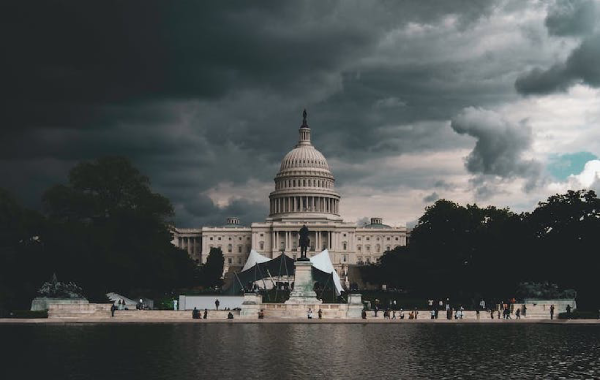The United States is facing the possibility of an unprecedented default on its obligations as early as June 2023 if Congress does not act to lift the debt limit, according to a report from the Bipartisan Policy Center (BPC).
At risk of default by June
The center forecasts the approximate “X-date,” the date when the government will no longer be able to meet its financial obligations on time. The BPC said that the US will reach its statutory debt limit as soon as the summer or early fall of 2023, which is an increase from its previous prediction in June 2022 that the “extraordinary measures” the US Treasury uses to pay the government’s bills would not be exhausted before the third quarter of 2023.
Shai Akabas, the BPC director of economic policy, said that the new projections reflect “considerable uncertainty in our nation’s current economic outlook.” He called on policymakers to begin “bipartisan negotiations around our nation’s fiscal health and taking action to uphold the full faith and credit of the United States well before the X-date.”
The US Treasury has been using “extraordinary measures” since January 2023 to avoid default, and Treasury Secretary Janet Yellen notified Congress that “it is unlikely that cash and extraordinary measures will be exhausted before early June.”
Yellen said her actions would buy time until Congress can pass legislation that will either raise the $31.4tn borrowing authority or suspend the limit for a period of time. However, she stressed that it’s “critical that Congress act in a timely manner.”
Pending debt deal
President Joe Biden and Republican House Speaker Kevin McCarthy met earlier this month to talk about the debt limit, but expectations for quick progress are low as GOP lawmakers push for steep spending cuts in exchange for a deal. Biden has accused Republicans of planning to cut Medicare and social security, but McCarthy and Senate Republican Leader Mitch McConnell denied those claims.
The BPC report cited the December 2022 big spending bill, an extended pause on student loan repayments, and high interest rates resulting in higher costs to service US debt as contributing factors to moving up the X-date.
The US treasury has used extraordinary measures at least 16 times since 1985, according to the Committee for a Responsible Federal Budget, a fiscal watchdog. Some economists have suggested that the treasury could prioritize certain payments to bondholders to buy time for policymakers to resolve the issue.
However, White House officials have said they will not prioritize payments to bondholders if the country passes the X-date without an agreement. Yellen has said that debt payment prioritization is default by another name.
“Failure on the part of the United States to meet any obligation, whether its debt holders, to members of our military or to social security recipients, is effectively a default,” she told reporters in January.
A default by the US on its obligations would have significant global economic implications. The US dollar is the world’s reserve currency, and the US government is the largest borrower in the world.
A default could cause interest rates to rise, leading to a global economic slowdown. It could also damage the US’s reputation as a reliable borrower, making it more difficult and expensive for the government and US companies to borrow money in the future.
The BPC report’s authors note that the consequences of a default would be severe and long-lasting, saying, “In addition to the immediate harm, a default would reduce economic growth, increase unemployment, and put more pressure on an already fragile social safety net.
It would also damage the US’s standing in the world, harm American businesses, and make it more difficult and expensive for the government to borrow in the future.”





















